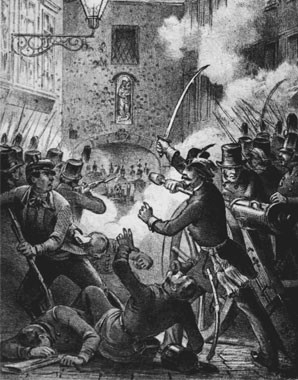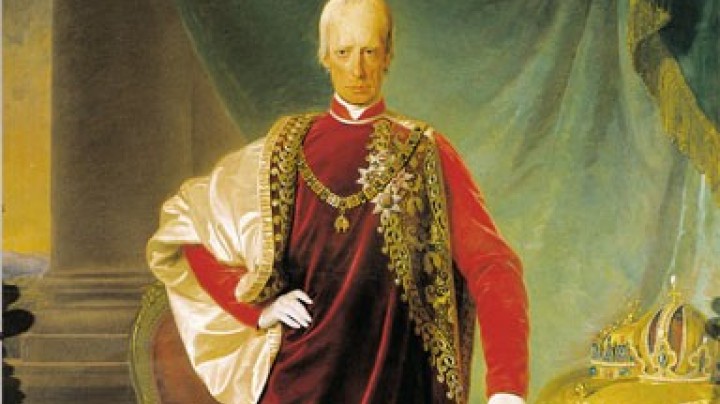What is a constitution?
The most important slogan of the nineteenth century was CONSTITUTION. But what did people expect from it?
A constitution provides the legal basis of a state. It enshrines the rights and duties of citizens, guaranteeing the legal status of the individual and the executive. With the Enlightenment and the French Revolution, the idea began to spread in Europe of a constitution that would guarantee human rights and recognize individuals as citizens. The revolutionary slogan of ‘liberté, égalité, fraternité’ embodied the basic ideas of the Enlightenment which proceeded from the notion that all humans were equal and their actions governed by reason. The desire for a legal framework was articulated by the educated and financially powerful levels of society, and for this reason people talked of a ‘bourgeois revolution’. The arbitrary whims of the rulers and the absolutist regime would be countered by human rights enshrined in laws. Inspired by the French constitution of 1791, the demand grew in the Habsburg Empire for a constitution – and in the revolutions of 1848 this had to be fought for in the literal sense of the word.














